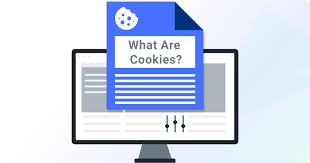What Are Cookies? Understanding Their Role in Web Browsing

In the world of web browsing, cookies play a significant role in enhancing user experience, tracking user preferences, and enabling online services. While cookies are a common aspect of our internet experience, many people are unaware of what they are and how they work. In this blog post, we’ll dive into the definition of cookies, their types, purposes, benefits, and how they impact your online activities.
What Are Cookies?
Cookies are small text files that are stored on a user’s device by a web browser while browsing a website. They contain data that is used to remember information about the user and their interaction with the website. Cookies are essential for providing a seamless online experience, enabling websites to recognize returning visitors and customize their experience based on previous interactions.
How Do Cookies Work?
When you visit a website, the web server sends a cookie to your browser, which is then stored on your device. The next time you visit the same website, your browser sends the cookie back to the server, allowing it to recognize you and recall your preferences or login details. This process enhances the functionality of the website and improves the overall user experience.
Types of Cookies
Cookies can be categorized into several types based on their duration and purpose:
1. Session Cookies
- Definition: These are temporary cookies that are deleted once you close your web browser.
- Purpose: They are used to manage user sessions, such as keeping you logged in while you navigate between pages on a website.
2. Persistent Cookies
- Definition: These cookies remain on your device for a set period or until you manually delete them.
- Purpose: They store user preferences and login information, allowing for a more personalized experience on subsequent visits.
3. First-Party Cookies
- Definition: Created by the website you are visiting.
- Purpose: They are primarily used for enhancing user experience and tracking user behavior on that specific site.
4. Third-Party Cookies
- Definition: Set by domains other than the one you are visiting, typically for advertising and tracking purposes.
- Purpose: They collect data for targeted advertising and help advertisers understand user behavior across multiple sites.
5. Secure Cookies
- Definition: These cookies can only be transmitted over secure HTTPS connections.
- Purpose: They provide an extra layer of security for sensitive data, such as login credentials.
6. HttpOnly Cookies
- Definition: Cookies that are inaccessible to JavaScript.
- Purpose: They help mitigate certain types of attacks, such as cross-site scripting (XSS), by preventing access from client-side scripts.
Benefits of Cookies
- Improved User Experience: Cookies allow websites to remember user preferences and settings, making navigation smoother and more intuitive.
- Personalized Content: By tracking user behavior, cookies enable websites to deliver tailored content and recommendations based on individual interests.
- Faster Load Times: Cookies can store certain data locally, reducing the need to re-fetch it from the server, thus improving load times.
- Session Management: Cookies help maintain user sessions, allowing users to remain logged in as they navigate through different pages of a site.
- Analytics and Insights: Website owners use cookies to gather data about user behavior, helping them make informed decisions to improve their sites.
How Cookies Impact User Experience
While cookies offer several benefits, they also raise privacy concerns. Many users are worried about how their data is collected and used, especially with the rise of targeted advertising. This has led to increased regulations, such as the General Data Protection Regulation (GDPR) in the EU, requiring websites to inform users about cookie usage and obtain consent.
As a result, you may notice cookie consent banners when visiting websites. These banners inform you about the types of cookies being used and give you the option to accept or reject them. Understanding how to manage cookies in your browser settings can help you maintain a balance between a personalized online experience and privacy.
Conclusion
Cookies are a fundamental aspect of web browsing that enhance user experience, enable personalized content, and facilitate seamless interactions with websites. Understanding the different types of cookies and their purposes can help users navigate the online world more effectively while remaining aware of their privacy. As the digital landscape continues to evolve, it’s essential to stay informed about cookie management and its implications for your online activities.
